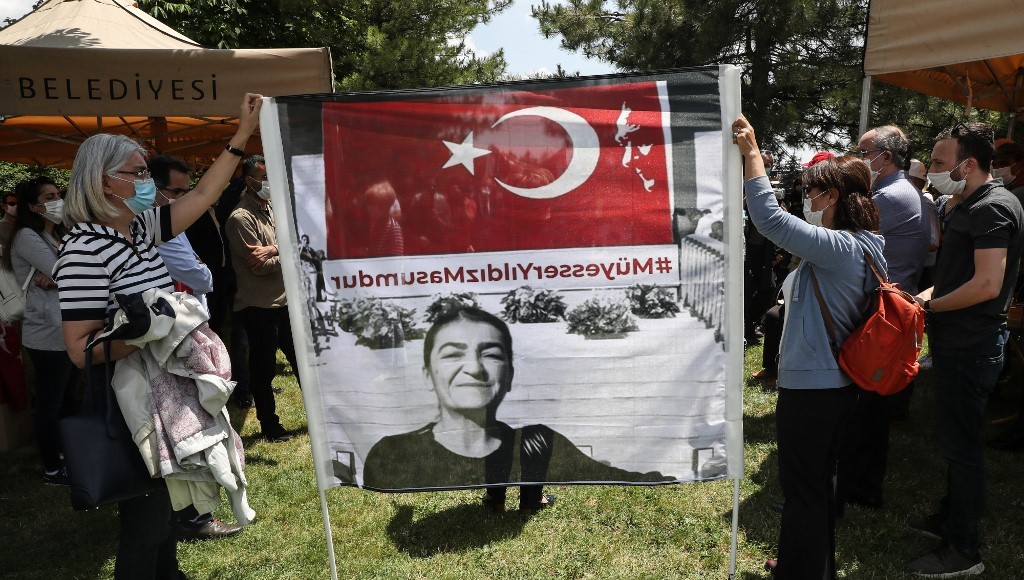A Turkish prosecutor is seeking a prison sentence of up to 31 years, six months for both Müyesser Yıldız, the Ankara news editor for the OdaTV news website, and İsmail Dükel, the Ankara representative of the TELE1 television channel, on charges of revealing state secrets, local media reported on Friday.
The prosecutor accused the journalists of “disclosing confidential information related to the security and political interests of the state” during a trial at the Ankara 26th High Criminal Court. The court will hold the next hearing on March 8, 2021.
Yıldız and Dükel were taken into custody on June 8, 2020. Yıldız was formally arrested three days later, while Dükel was released and placed under judicial supervision.
Yıldız, who was also released at the first hearing on November 9, is accused of revealing state secrets in two articles about the Turkish government’s military involvement in Libya.
One article published in December 2019 questioned which Turkish commanders met with Khalifa Haftar, the head of the Libyan National Army, which was fighting the internationally recognized Government of National Accord of Prime Minister Fayez al-Sarraj, backed by Turkey.
The second article, from January 2020, gave details about a military officer who was sent to Libya to oversee Turkey’s involvement there.
The journalist is widely known for her pieces scrutinizing the narrative of President Recep Tayyip Erdoğan’s ruling Justice and Development Party (AKP) on a 2016 coup attempt, which allowed the president to seize vast powers, according to the Turkish media.
Following her release, Yıldız argued in an interview published in the Cumhuriyet daily that her imprisonment was ordered by the AKP government to stop her from investigating what really went down on the night of the abortive putsch on July 15, 2016, which killed 251 people.
“I’m a journalist, and I don’t have to accept July 15 as they [the AKP] present it. I ask about it, I investigate it. July 15 must be investigated. Those really responsible for it are still walking free. My biggest crime was to ask questions about that night,” the 58-year-old journalist said.
Immediately after July 15, Erdoğan and his ruling AKP pinned the blame on the Gülen movement, inspired by US-based Muslim cleric Fethullah Gülen, describing it as a terrorist organization.
Although both Gülen and his followers strongly denied having any role in the failed coup or any terrorist activities, Erdoğan and the government initiated a widespread purge aimed at cleansing sympathizers of the movement from within the state institutions, dehumanizing its popular figures and putting them in custody.
A total of 292,000 people have been detained while 96,000 others have been jailed due to alleged links to the Gülen movement since the failed coup, according to a statement from Interior Minister Süleyman Soylu in November.
In addition to the thousands who were jailed, scores of other Gülen movement followers had to flee Turkey to avoid the government crackdown.
Government pressure on independent journalists and news outlets in Turkey has also increased in the aftermath of the failed coup, since the AKP government’s massive crackdown also targeted non-loyalist citizens under the pretext of an anti-coup fight.
According to the Stockholm Center for Freedom’s “Jailed and Wanted Journalists in Turkey” database, 175 Turkish journalists are behind bars and 167 are wanted and either in exile or at large.



